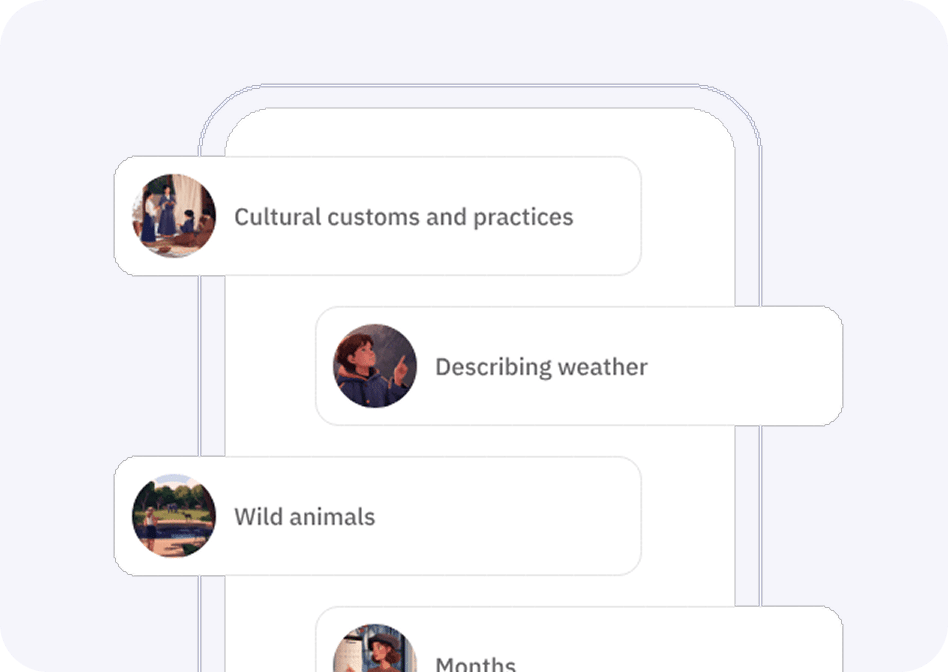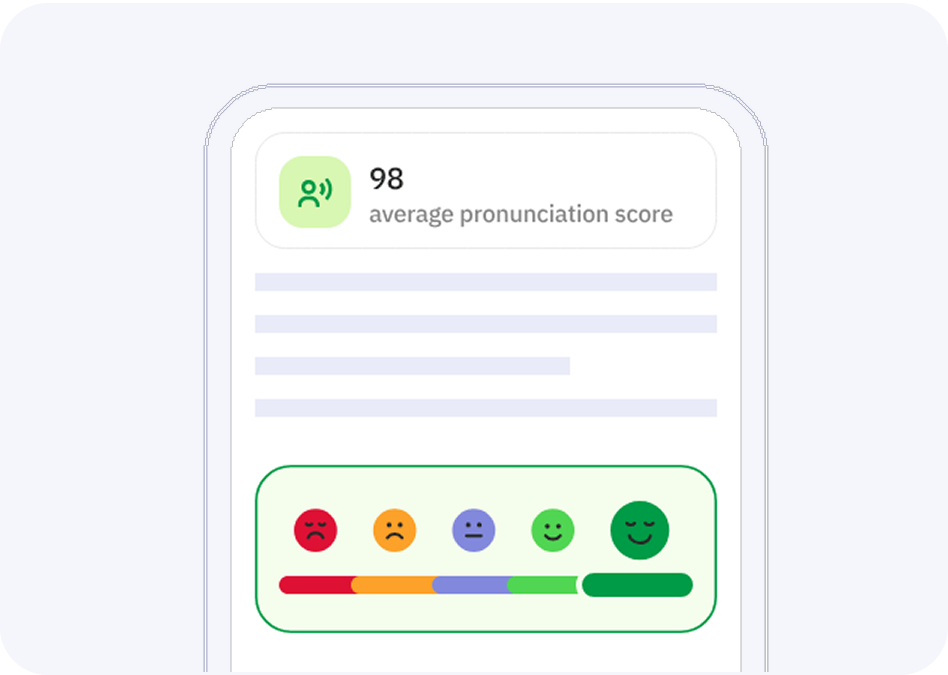10 Proven Strategies to Learn English Faster and Outrank the Competition
Mastering the English language can open doors to countless opportunities. But how can you learn English faster and more effectively? In this article, we share 10 proven strategies that will help you improve your English skills and achieve your language goals. Learning English is a valuable skill that can open doors to countless opportunities. By employing these 10 proven strategies in your language learning journey, you’ll not only expedite your progress but also stand out from the competition. Remember, practice makes perfect, so keep pushing yourself to improve and enjoy the process along the way.

The talkpal difference

Personalized Education
Every student has a distinct approach to acquiring knowledge. Through Talkpal technology, we analyze the study patterns of millions simultaneously to build highly effective educational environments that adapt specifically to individual needs. This ensures your journey is fully customized based on your interests and goals rather than a generic curriculum.

Cutting-Edge Technology
Our central mission is to lead the way in providing universal access to a tailored learning journey. By utilizing the most recent breakthroughs in artificial intelligence and modern software, we ensure that everyone can benefit from a sophisticated and personalized educational experience.

Making Learning Fun
We have transformed the study process into a delightful activity. Staying motivated while learning online can often be a struggle, so we designed Talkpal to be incredibly captivating. The platform is so engaging that users frequently prefer mastering new language skills over playing video games.
LANGUAGE LEARNING EXCELLENCE
The most efficient way to learn a language
Try Talkpal for free10 Tips to Follow
1. Immerse Yourself in the Language
One of the most effective ways to learn English quickly is through immersion. Surround yourself with English speakers and engage in daily conversations. Watch English movies and TV shows, listen to podcasts, and read books in English. The more you practice, the faster you’ll improve.
2. Set Realistic Goals and Monitor Your Progress
Set achievable goals to keep yourself motivated and focused. Break down your long-term goals into smaller, manageable tasks. Track your progress regularly so you can identify areas that need improvement and adjust your learning strategies accordingly.
3. Use Technology to Your Advantage
Leverage technology to enhance your language learning experience. Utilize language learning apps, online courses, and other digital resources to practice grammar, vocabulary, and pronunciation. These tools can help you learn more efficiently and effectively.
4. Master the Art of Active Listening
Active listening is essential for understanding spoken English. Practice listening to different accents, speeds, and levels of difficulty. Repeat what you hear, and use subtitles or transcripts to check your understanding. This will help you become more comfortable with the nuances of spoken English.
5. Focus on Vocabulary Expansion
Building a strong vocabulary is key to becoming fluent in English. Learn new words daily, and use flashcards, word lists, and apps to reinforce your learning. Regularly review the words you’ve learned and incorporate them into your conversations.
6. Develop Your Reading Skills
Reading is an excellent way to improve your English comprehension and vocabulary. Start with simple texts and gradually progress to more complex materials. As you read, take note of unfamiliar words and phrases and look them up to expand your vocabulary.
7. Embrace the Power of Writing
Writing helps solidify your understanding of English grammar and sentence structure. Practice writing regularly, and seek feedback from native speakers or language experts. This will help you identify your strengths and weaknesses and improve your writing skills.
8. Master English Grammar
Understanding the rules of English grammar is crucial for effective communication. Dedicate time to learning grammar rules and practice applying them in your writing and speaking. Use grammar exercises, quizzes, and apps to reinforce your learning.
9. Speak Confidently and Practice Pronunciation
Don’t be afraid to make mistakes when speaking English. The more you practice, the more confident you’ll become. Work on your pronunciation by focusing on difficult sounds, intonation, and stress patterns. Record yourself speaking to identify areas for improvement.
10. Find a Language Partner or Join a Language Exchange Group
Connecting with native speakers or fellow learners can provide valuable feedback and support. Join language exchange groups, attend meetups, or find a language partner online. Engage in regular conversations to practice speaking and listening skills.
By following these 10 proven strategies, you’ll be well on your way to learning English faster and more effectively. Be patient, stay committed, and enjoy the journey towards language mastery.
The most efficient way to learn a language
Try Talkpal for freeFrequently Asked Questions
Can I learn English on my own using these strategies?
How long will it take me to become fluent in English using these strategies?
Can these strategies be applied to learning other languages as well?
How can I find a language partner or language exchange group?
How can I find a language partner or language exchange group?
What are some recommended resources for learning English?







